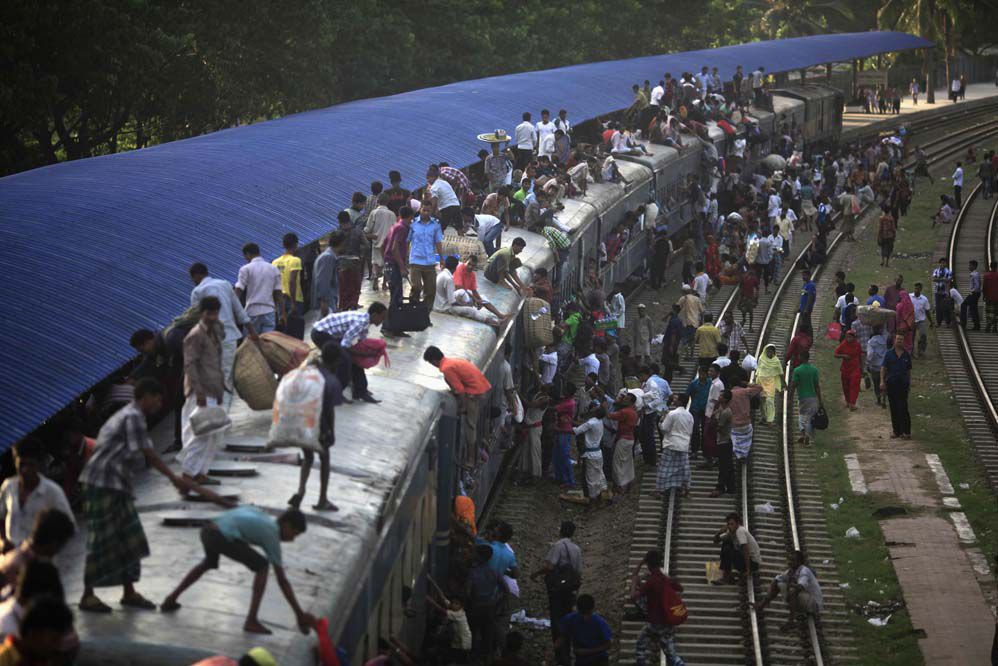NEOLIBERALISM-2: THE REAL STORY

The free market has long been touted as the best means to create growth and lift people out of poverty. Accordingly, the benefits claimed in the Report are:
# Global trade has rescued millions from abject poverty, and
# Privatization of state-owned enterprises has in many instances {emphasis supplied} led to more efficient provision of services and lowered the fiscal burden on governments.
The claimed benefit of rescuing millions from abject poverty is disputable because governments have long been manipulating statistics to show decreasing levels of poverty so as to provide an attractive investment climate which will improve economic growth. The second claimed benefit is qualified by the phrase “in many instances”, which implies that in many other instances, privatization was not successful if not actually harmful. Also if, as admitted, “benefits in terms of growth are difficult to establish”, how can “efficient provision of services … “ by privatization of state-owned assets be claimed except for specific instances?
A telling sentence in the Report speaks of uncertain benefits and certain costs: “Although growth benefits are uncertain, costs in terms of increased economic volatility and crisis frequency seem more evident”. And as Benjamin Dangl puts it: “Instead of delivering growth, the report explains that neoliberal policies of austerity and lowered regulation for capital movement have in fact increased inequality and this inequality might itself undercut growth”. [Ref.5].
Further, in a masterly understatement, the Report says: “… the benefits of some policies that are an important part of the neoliberal agenda appear to have been somewhat overplayed” {emphasis supplied}. It also goes on to say,“… there is now strong evidence that inequality can significantly lower both the level and the durability of growth”, even while the economic gap between the 1% haves and the 99% have-nots widens, and social tensions mount.
The Report states in the very first paragraph, that the phrase “neoliberal agenda [is] a label used more by the critics than the architects of the policies”. That the authors of the Report use the phrase repeatedly throughout the text indicates that the thrust of the Report is admission of the failings of the neoliberal agenda. Perhaps they claim its benefits (“there is much to cheer in the neoliberal agenda” ) to maintain their credibility within IMF and ensure the not unfavourable internal review of the Report. However, the fact that the Report has seen the light of day does credit both to the authors and to IMF.
Is the neoliberal ideology unraveling?
The present commentary is written in the hope that governments, economists, teachers and proponents of the neoliberal free-market economy, and the politician-corporate nexus which drives the neoliberal agenda, will begin to understand that the growth-at-any-cost ideology cannot be sustained from the points of view of democracy, social justice, economic inequality, environment (as a source of material resources and a sink for wastes), ecology and climate change. They also need to understand that continuing in the current direction is self-defeating.
Ben Geier opines : “Neoliberalism … is not going to be overtaken by another ideology overnight. But the IMF paper signals that the system is starting to tear apart at the seams”. [Ref.7].
There are undoubtedly many who may pray that neoliberalism will drop dead tomorrow. They are sure to be disappointed, because it will not. Not even next year. Neoliberalism is a system fathered by its high priest Milton Friedman, based upon an economic paradigm which was created by input of enormous energies, and which grew and matured over decades. It resulted in huge benefit to very few and enormous harm to the vast majority of humans, with irreversible damage to the environment and all other living species.
The publication of the Report “Neoliberalism Oversold?”, from the very temple of neoliberalism, may be the writing on the wall indicating the terminal decline of neoliberalism. It gives hope to those who believe that democracy, social equity and justice, and freedom are vital for a sustainable future. But when and how it will finally collapse is in the womb of time, but small consolation for the many millions who have died, suffered and continue to suffer the irreversible ill-effects of inequality due to neoliberalism.
For its part, the 99% clearly understand that freedom will never be presented on a platter by the 1% power structure, for no system will be tamely surrendered by those who profit from it. The 99% will certainly renew efforts to grasp freedom with both hands and claim it for its own. But what the 99% will do with that freedom, and what sort of economic system will emerge from the turbulent transition is also in the womb of time.
References
1. Naomi Klein; “The Shock Doctrine; The rise of disaster capitalism”, Metropolitan Books, Henry Holt & Company, New York, 2007.
2. Michael Goldman; “Imperial Nature: The World Bank and Struggles for Social Justice in the Age of Globalization”; Yale University Press, 2005.
3. Susan George; “A Fate Worse Than Debt”; New York; Grove Weidenfeld, 1990.
4. Jonathan D. Ostry, Prakash Loungani & Davide Furceri; “Neoliberalism Oversold?”, Report of IMF Finance & Development, June 2016, Volume 53, Number 2, pp.38-41.
5. Benjamin Dangl; “After Empowering the 1% and Impoverishing Millions, IMF Admits Neoliberalism a Failure”;
6. Tim Worstall; “The IMF Has Not Rejected Neoliberalism Nor Austerity: Rather, They've Examined Them”; May 28, 2016.
7. Ben Geier; “Even the IMF Now Admits Neoliberalism Has Failed”.
(First Part of the Article: Neoliberalism1)



